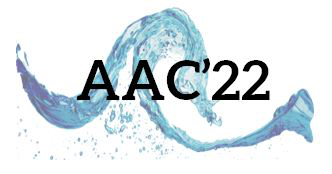Speaker
Description
Owing to the provision of GV/m accelerating fields, beam-driven plasma accelerators are a promising technology for the miniaturization of particle accelerators. Energy gains of GeV or even tens of GeV are already achievable so to extend this range to 0.1 - 1 TeV, a sequence of multiple plasma stages is being considered.
While plasma-accelerator stages itself are sufficiently small, beam-transport components and distances between stages can be among the biggest contributors to the total accelerator length and therefore decrease the average accelerating gradient of a plasma-accelerator linac.
A new concept to design beam lattices in beam-driven plasma accelerators will be presented. By taking advantage of the fs-ionization front, typical for laser-ionized plasmas, plasma wakefields are gated in, thereby allowing for different lattices - separated in the temporal domain.
When applying this method to staged beam-driven plasma accelerators, drive beams can propagate as a bunch train with a small spacing and in-and out-coupling is possible with compact magnetic chicanes. As a consequence, the total stage size can remain sufficiently short to maintain an accelerating gradient of about 1 GV/m, scalable to TeV energy gains.
Acknowledgments
We acknowledge the Grand Équipement National de Calcul Intensif (GENCI) Joliot-Curie et Très Grand Centre de Calcul (TGCC) for granting us access to the supercomputer IRENE under Grants No. 2020-A0080510786, 2021-A0100510786, 2021-A0110510062 and 2022-A0120510786 to run PIC simulations. The work was supported by the European Research Council (ERC) under the European Union’s Horizon 2020 research and innovation programme (M-PAC project, Grant Agreement No. 715807

